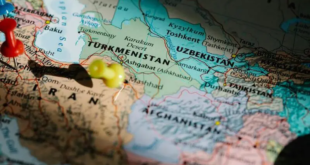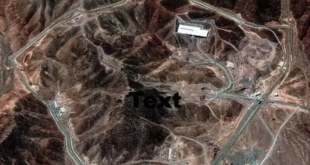
U.S. President George W. Bush warned on Wednesday that if Iran develops nuclear weapons, the result could be a new world war.
Â
The president’s comments at a White House news conference came a day after President Vladimir Putin’s visit to Tehran, where the Russian leader said he saw no evidence that Iran was developing nuclear weapons. Asked by a journalist about Putin’s comments, Bush said: “I look forward to having him clarify those.” He went on to say, “I believe they [the Iranians] want to have the capacity, the knowledge, in order to make a nuclear weapon. And I know it’s in the world’s interest to prevent them from doing so.”Â
“If you’re interested in avoiding World War III, it seems like you ought to be interested in preventing them from having the knowledge necessary to make a nuclear weapon,” the president said.Â
The United States has led international efforts to pressure Iran to halt its uranium enrichment program, which Tehran insists has only peaceful goals. While supporting the country’s right to civilian nuclear power, Russia has stood by the other UN Security Council permanent members in two rounds of sanctions against the Islamic Republic over its refusal to cooperate on the issue.Â
Putin’s trip to Iran for a summit of Caspian littoral states, the first visit by a Russian or Soviet leader since Joseph Stalin traveled to Iran in 1943, provoked concerns in the West over increasingly close ties between Moscow and Tehran. The summit resulted in a five-way agreement that no Caspian nations would allow the use of their territories for a military strike against any of them.Â
Asked whether he was concerned over the “growing relationship” between Putin and his Iranian counterpart Mahmoud Ahmadinejad, in particular judging by photos of the two leaders engaged in friendly conversation in Tehran, Bush said: “I don’t worry about the pictures. I understand why they meet. I will continue to work with Russia, as well as other nations, to keep a focused effort on sending Iran a message that you will remain isolated if you continue your nuclear weapons ambitions.”Â
As well as their differing stances on Iran and other international issues, tensions between Russia and the United States have been strained over Washington’s accusations that democracy has been eroded in Russia under President Putin.Â
A journalist pointed out to Bush that the Russian leader has announced he may become prime minister after his presidential term expires next March, “in effect keeping power and dashing any hopes for a genuine democratic transition.”Â
In response Bush, who has 15 months left in office, quipped: “I’ve been planning that myself.”Â
The U.S. leader said he quizzed Putin over who would be Russia’s next president when the two met in Sydney for a Pacific Rim summit in September. “I tried to get it out of him, who’s going to be his successor, what he intends to do, and he was wily. He wouldn’t tip his hand.”Â
Bush suggested Western-style democracy was a long way off for Russia, where the population is used to a centralized power structure.Â
“In terms of whether or not it’s possible to reprogram the kind of basic Russian DNA, which is a centralized authority, that’s hard to do. We’ve worked hard to make it appear in their interests – we made it clear to them that it is in their interests to have good relations with the West. And the best way to have good long-term relations with the West is to recognize that checks and balances in government are important, or recognize there are certain freedoms that are inviolate,” he said.
 Eurasia Press & News
Eurasia Press & News

